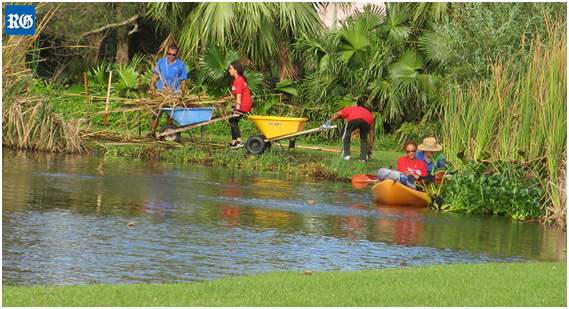Recent News
Endangered turtle returns to oceanTuesday, July 19, 2016
Exactly 200 days after two fishermen found her bobbing aimlessly off the North Shore and gasping for every breath, Daisy the loggerhead turtle has been returned to the open ocean.
Shedding light on mysteries of deep
Tuesday, July 19, 2016
A deep ocean research mission is set to begin off the coast of Bermuda tomorrow
Financial boost for marine research project
Saturday, July 16, 2016
A global marine research project that will begin in Bermuda has received its first financial donation from a local firm.
Ocean Tech Initiative Receives Local Support
Wednesday, July 13, 2016
Only one week after launching Ocean Tech – a global marine research project to help save the world’s oceans – the team of scientists, conservationists and media specialists who are leading this ambitious endeavour have received their first local donations.
Snake captured in Sandys
Friday, July 08, 2016
Conservationists have warned of the disastrous consequences snakes could have on Bermuda’s wildlife after a species of kingsnake was captured in Sandys.
About
GovernanceAbout Us
Newsletter
Latest News
Gift & Bookstore
Contact
General Inquiries
info@bzs.bm
Latest News
All the latest updates and news from the Bermuda Aquarium, Museum, and Zoo, one of Bermuda's leading visitor attractions!
Jonathan Bell
Published Jan 16, 2018 at 8:00 am (Updated Jan 16, 2018 at 6:41 am)

HSBC volunteers help a Bermuda Zoological society team clean up
Cloverdale Pond in Smith's (Photograph supplied)
Two ponds have been cleaned up courtesy of an island conservation programme.
Cloverdale Pond in Smith’s and Southampton’s Evan’s Pond, a refuge for endangered species, were improved through the Bermuda Zoological Society’s wetlands remediation programme.
The scheme, which became the HSBC global water programme for Bermuda in 2014, was designed to remove toxic petroleum compounds from ponds.
The build-up of the poisonous hydrocarbons is a threat to the island’s two endemic killifish species, as well as native diamondback terrapins, which are a protected species.
The compounds, which come from oil, water runoff and vehicle exhausts, can be broken down by bacteria when the pond sediments are aerated.
The two-year grant from HSBC allowed the proposal to be tested in the field.
Volunteers also took part, with help from the Department of Environment and Natural Resources.
The BZS said Cloverdale was chosen first because of its small size, its “known severe effects on wildlife” and the absence of protected species in the water.
Evan’s Pond was selected as the second test site because of its small population of killifish.
The ponds were divided into sections and aerated for six to eight hours a day with solar powered compressors.
Hydrocarbon levels saw a major reduction over the course of a year.
The next site for remediation is the South Pond at the Mid Ocean golf course, where the hatching of diamondback terrapins has been hampered by pollution.


